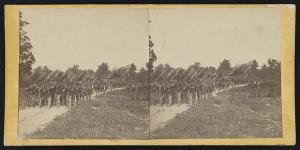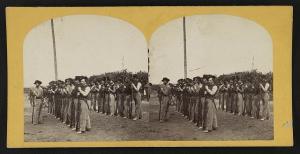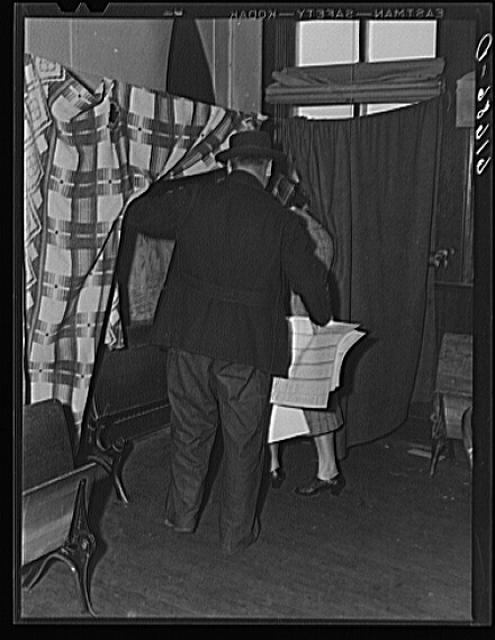I’ve gone to the polls many times, but I’ve never had to be concerned about the military interfering with my vote. Apparently not so in Civil War Kentucky.
From the Richmond Daily Dispatch November 4, 1864:
Governor Bramlette, of Kentucky, and the Approaching Presidential “election.”
Governor Bramlette, of Kentucky, has periodical fits of sauciness towards his master at Washington, which must amuse the Yankees a good deal, especially as nothing ever comes out of them. His last proclamation is a good specimen. It refers to the military control which the New England masters of Kentucky intend to exercise over the voting in that State at what is called, by way of a joke, the “coming Presidential election.” It is dated “Executive Mansion, Frankfort, October 17,” and here is an extract:
The military authorities have nothing to do with elections, and have no authority or right, as officers or soldiers, to interfere therewith. At elections, all are citizens — none are soldiers. Citizenship is the highest status of the man. The soldier is but a citizen employed in the military service — not in the civil. The duty of the soldier is to support — not to overthrow or control — the civil authority. He is to establish the civil authority where it has been overborne by revolt — not to overrule or usurp civil authority.
If, therefore, any military officer shall show-himself so regardless of duty as to assume to direct or control the officers of election, you should treat such orders with indignant contempt, and scorn obedience which implies perjury and cowardice in you.
If military force is brought to menace the officers of election or voters, your duty is clearly marked out by law. The law is as binding upon the soldier as upon any other citizen. He has no more right to violate it, and is as amenable to its penalties. As no officer of any rank, from the President down, has any right or authority to interfere with elections, no order to do so can legalize the act. If there be sufficient power in the citizens present at any place where such interference may be attempted to arrest the offenders, and hold them over to answer to the violated laws, it will be the duty of the sheriff to make the arrest in such case. He has authority to require the aid of every citizen, and it should be readily and promptly given in defence of a common right — of a blood-bought franchise. If the force employed to interfere with the election be too great, at any place of voting, to be arrested, the officers of election in such case should adjourn, and not proceed with the election. If you are unable to hold a free election, your duty is to hold none at all, but adjourn and report the offenders to the grand jury of your county for indictment and punishment.–This is the lawful mode of meeting unlawful attempts to disturb the freedom of elections.
Thomas Elliot Bramlette was elected Kentucky governor in 1863 amid ” complaints about the election as Union forces which occupied the state were said to have intimidated supporters of [Bramlette’s opponent] Wickliffe. As a result, Bramlette won the election by a 4 to 1 margin.” When the Civil War broke out Mr. Bramlette raised a regiment for the Union army. As governor his support for the Lincoln administration eroded. He disagreed with arming Kentucky slaves and with the suspension of habeas corpus in the state.
General Stephen G. Burbridge was Union military commander of Kentucky during much of 1864. According to The Kentucky Civil War Bugle:
To ensure Lincoln’s reelection, Burbridge allegedly tampered with returns in Kentucky and arrested candidates and campaign participants he considered objectionable as well as people he thought might vote for someone other than Lincoln.
Lt. Gov. Richard Taylor Jacob and Kentucky Supreme Court Chief Justice Joshua Bullitt were among those arrested and taken away.
As it turned out, General McClellan won Kentucky’s 11 electoral votes.
I did not put the photos of the 134th Illinois in this post to suggest that the regiment interfered with the Kentucky vote.
_________________________________________________
_________________________________________________



